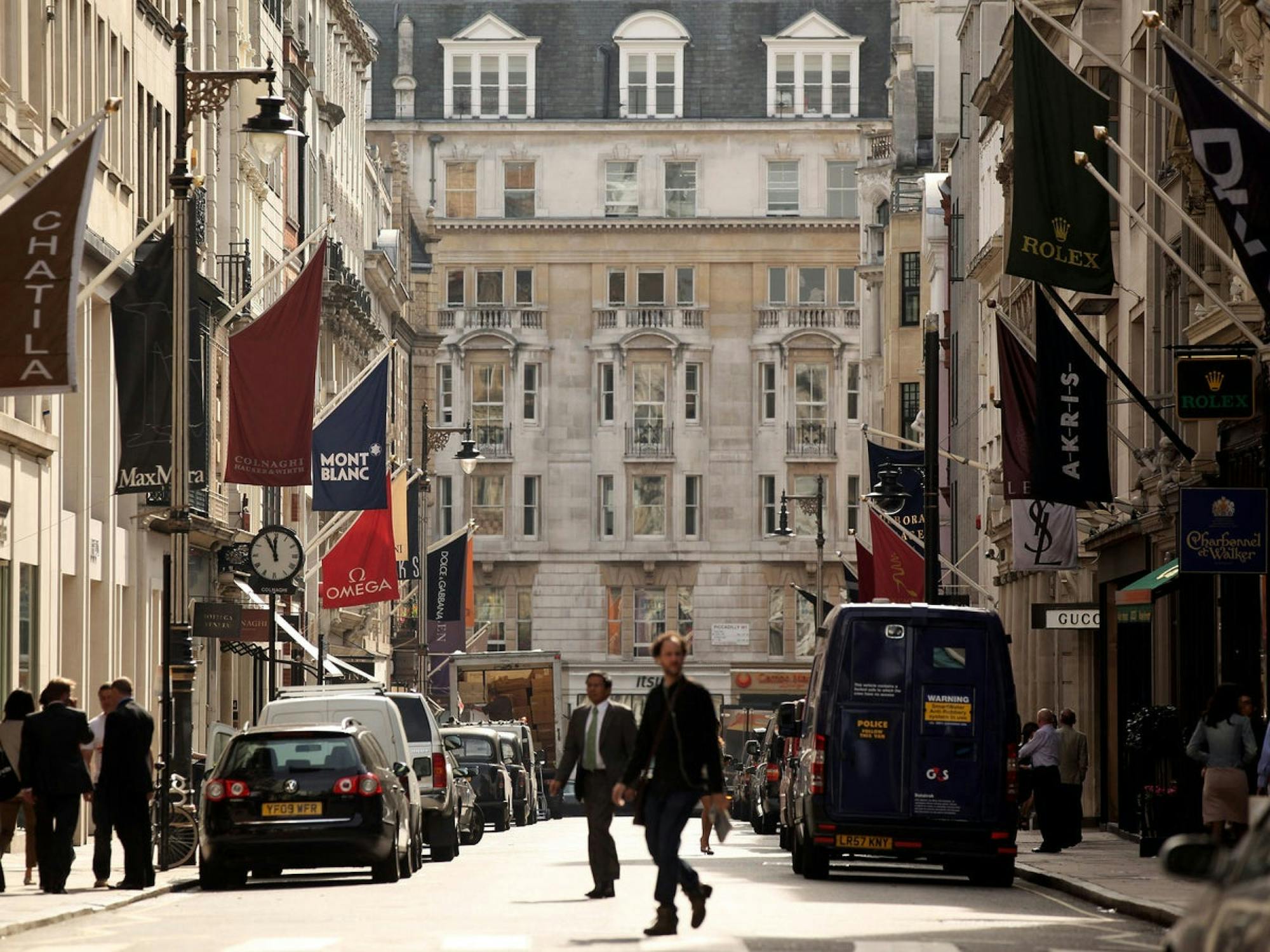

for Walpole members and
non-members available now
at The Londoner



The two key pillars of British luxury’s business model – tourism and international trade have faced some monumental challenges over the past two years. Between COVID-19 which brought international travel to a virtual standstill, the withdrawal of the VAT Retail Export Scheme this time last year and the disruption of Brexit, the landscape within which luxury brands operate became much harder.
Promoting Britain Abroad & The Tourism Recovery Plan
In June 2021, the Government announced its Tourism Recovery Plan and subsequently, Walpole submitted a response to the Digital, Culture, Media and Sport (DCMS) Select Committee’s consultation into ‘Promoting Britain Abroad’ which examines how Britain’s cultural heritage can be used to promote the UK as an international holiday destination and boost the damaged tourist industry.
UK luxury has long known its value to the British tourism and travel industries through the international appeal of its brands, hotels, restaurants and cultural experiences which are highly influential in attracting visitors to our shores. The rise of Shopping Tourism (particularly for luxury goods) is well documented and the value of sales of high-end goods to non-UK resident customers was around £4.5 billion in 2017
The Tourism Recovery Plan aims to drive economic recovery back to 2019 levels by 2023, two years ahead of economist’s predictions. However, currently, the Tourism Plan makes no mention of the value of retail in attracting domestic and international tourists and the significant wider benefits of thriving high-end retail sector to the travel and tourism industries.
Walpole’s conjecture is that if the allure of high-end British retail and high-end British brand experiences was recognised, and if three simple stimuli were included (improved visa access for high value visitors, the introduction of a possibly short term tax-free shopping scheme to replace VAT RES whilst the UK is in post pandemic recovery, and the relaxation of Sunday trading for London’s designated international retail areas), we would be able to hit this target for international visitors by ensuring that there was a level playing field versus Continental Europe. This would allow the UK’s natural and cultural advantages to shine and therefore allow us to maximise wallet share of the international visitors who can contribute most to the economic recovery.
Overview of Policy Recommendations
Tax-Free Shopping
Since the Government abolished the VAT RES (Tax-Free Shopping) and Airside tax-free shopping scheme from January 1st, 2021, the UK is now the only European country not to offer tax-free shopping to non-EU visitors. This severely impacts our appeal to international visitors and hinders our potential recovery from the pandemic. The removal of the VAT RES has already had a huge impact on the UK’s appeal to international visitors and has bought with it considerable challenges to our industry’s recovery from the pandemic.
A leading fashion brand and UK manufacturer that provided input into Walpole’s submission, reported that pre-pandemic 50% of their sales in the UK were through the VAT RES scheme. They are already seeing their international customers diverting their trips and spend to European countries that continue to offer tax free shopping. Fewer Americans and Middle Eastern customers are travelling to the UK to shop, choosing instead to go to France or Italy, and Chinese clients they have spoken to plan shopping on the continent instead when travel resumes. For this business, the recovery in sales to tourists in Europe is already 20% ahead of the UK which they directly attribute to the loss of tax-free shopping in the UK.
Government policies currently serve to make London a less attractive global destination for international visitors than, for example, Paris or Milan whereas British luxury brands are actively investing in creating and enhancing tourist attractions and experiences.
Prior to the pandemic, the British luxury sector was growing at a rate of nearly 10% per annum, double the growth of GDP. With the right support, particularly and crucially in attracting high spending visitors back to the UK, it will help the UK bounce back from the pandemic.
Visas
The UK visitor visa regime has fallen behind that of Schengen both in its offer and application. The Government should:
• Ensure that the visitor visa product and application process match that of Schengen, particularly the Electronic Visa Waiver scheme for visitors from the GCC states.
• Extending the Electronic Visa Waiver Scheme to other high spending markets e.g., China.
• Introduce a standard 10-year visitor visa, as countries like the USA have done, for Chinese visitors.
• Introduce a visa for the families of international students studying in the UK that lasts as long as the student visa, to encourage parents to visit their children multiple times during their studies.
• Expand the joint Schengen/UK visa application process in China – currently a pilot with Belgium - to Schengen countries with larger numbers of visitors, such as France and Italy.
Sunday Trading
Restrictions on opening hours on Sundays for stores of over 250 m sq. put London’s two International Centres at a disadvantage since stores in most of our international competitors face few or no restrictions.
With the two International Centres now geographically defined in the London Plan, the Government should add them to the existing list of exemptions in the 1994 Sunday Trading Act (which will not have a wider impact on Sunday trading regulations throughout the rest of England).
We have seen a plethora of British luxury brands make significant investments in their visitor experiences. From World of Wedgwood, Johnstons of Elgin’s Cashmere Visitor Centre and of course the whisky sector exemplifies how to expand whisky tourism from Macallan Distillery Experience in Speyside to Diageo’s £150 million investment in whisky tourism projects to promote Johnnie Walker and its supporting distilleries, brands understand the value of interactive experiences for visitor to the bottom line.
Now we need to ensure that the UK doesn’t create a self-inflicted disadvantage to its European peers at this time. There is opportunity for the Government is to establish an alternative tax incentive scheme (across airside and high street) which not only champions the UK as an attractive destination for visitors but also which commits to truly supporting British businesses here at home.
If you would like further information, please contact Carly von Speyr.
As we all now look to the path not only of recovery, but beyond that to growth, it has never been more important to engage with our own Government at all levels to educate and inform them about a sector which is worth £48billion to the UK economy and employs 160,000 people the length and breadth of the country in long-term, sustainable jobs. Walpole has been working with Hawthorn Advisors on a programme of briefings with MPs, Ministers, Special Advisors and civil servants to communicate British luxury’s economic, manufacturing and cultural impact on topics such as jobs & skills, tourism, SMEs, hospitality and exports.
To date, Walpole’s Chief Executive, Helen Brocklebank, has met with:
• John Stevenson MP for Carlisle, Steve Double MP for St Austell and Newquay
• Lucy Noakes, Special Advisor, Department for Digital, Culture, Media and Sport
• Nigel Huddleston, Minister for Sport, Tourism, Heritage and Civil Society
• Paul Scully (Minister for Small Business, Consumers and Labour Markets)
Further meetings are scheduled in the coming weeks with:
• Sir John Hayes MP for South Holland and The Deepings in Lincolnshire
• Jack Brereton, MP for the Stoke-on-Trent South
• Minster Mike Freer, Minister for Exports and MP for Finchley and Golders Green
Our thanks to members who have provided information and case studies to inform those meetings – your contribution is crucial not only in bringing the statistics to life and enabling Walpole to create an authoritative evidence-based, but to connecting the dots between business and policy.





